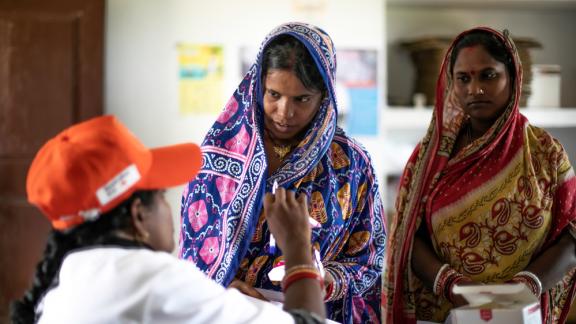The world witnessed terrible, heart-wrenching scenes of my people trying to leave my beautiful homeland of Afghanistan on August 15th 2021. Since then, the world has moved on but the people of my country are living with a hope of a brighter future despite looming uncertainty.
I became a volunteer at the Afghan Family Guidance Association (AFGA), around 33 years ago. I witnessed the 1992 civil war, which deeply impacted our work. For 10 years, AFGA could not operate in the country. In 2002, we re-started the organisation by setting up an office in the small room of the women’s hospital where I was the director. I remember sitting in the room with my inspiring women colleagues and working on plans to re-start our activities. We didn’t have any budgets, but gradually worked to become a Member Association of IPPF.
From the room, we moved our office to a building which is lease free today. We are the only not-for-profit in the country to own a space. It makes me extremely proud as our tireless hard work paid off and gave us our financial independence. AFGA’s journey has been full of ups and downs.
The challenges we face today remind me of these old days. The restriction on movement of women in public spaces within Afghanistan and the requirement of ‘Mahram’1 to be present at all times, even for visits to the hospital, is a major challenge. In the health sector, female doctors and staff have been allowed to work but not in other sectors. It is painful to witness women being denied permits to travel for educational purposes outside the country, young girls unable to attend school or even gather together in public parks.
When I look back at years of our work in AFGA, I am reminded of the many interactions me and my colleagues had with young aspiring school girls. We educated more than 10,000 adolescent girls about their reproductive health, menstrual hygiene and bodily autonomy. They had so many questions and were ever so curious to know more from us. It was one of our most successful initiatives and we were flooded with requests from schools across the country. Our plans were to advocate for inclusion of these subjects in the school curriculum. All of that is lost.
I write this piece ahead of 16 days of activism, urging the international community to not leave the girls in Afghanistan alone. Education and awareness is the only weapon they have against violence. If young girls are denied the right to education, they will be forced to marry early. Maternal health services have been significantly impacted in the last one year. With young girls being forced into early marriages, we fear cases of Obstetric fistula2 and even maternal mortality rate might increase. We must not let years of good work be undone.
The young generation of Afghan men and women are educated, and their voices must be heard and respected. Now more than ever we need to do the work we do. We will stand together and resist. We will never give up our work for women’s health and rights in Afghanistan. The uncertainty that we see in the country will not continue forever, it will end.
The international Afghan women community are connected and concerned about the future of women in the country. We aspire to build a better future for our people, particularly our girls.
1 In Islam, a mahram is a member of one's family with whom marriage would be considered haram (illegal in Islam) (excluding husband, whom the woman is already wedded to), concealment purdah, or concealment of the body with hijab, is not obligatory; and with whom, if he is an adult male, she may be escorted during a journey, although an escort may not be obligatory.[1]
when








